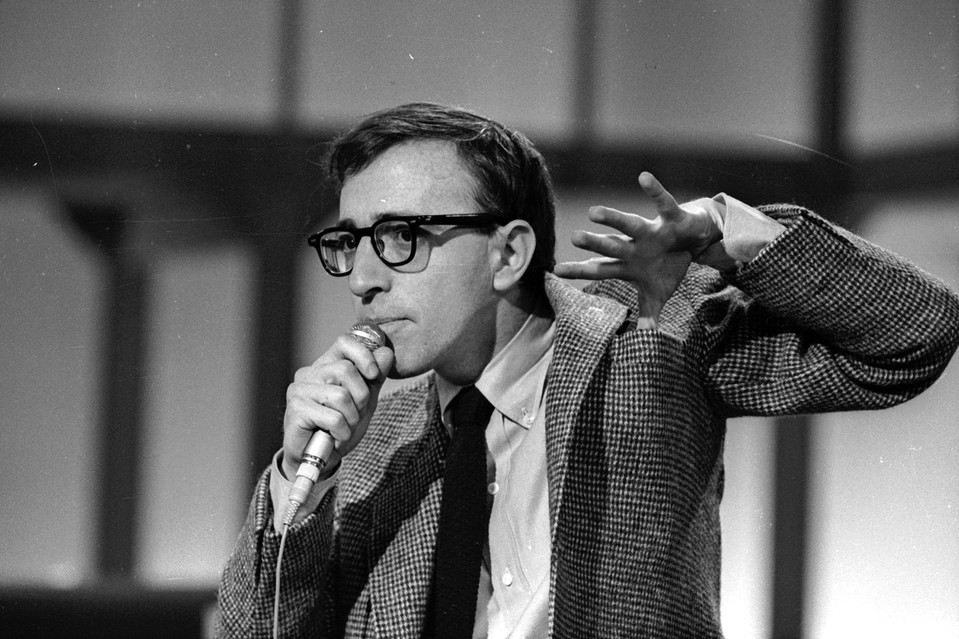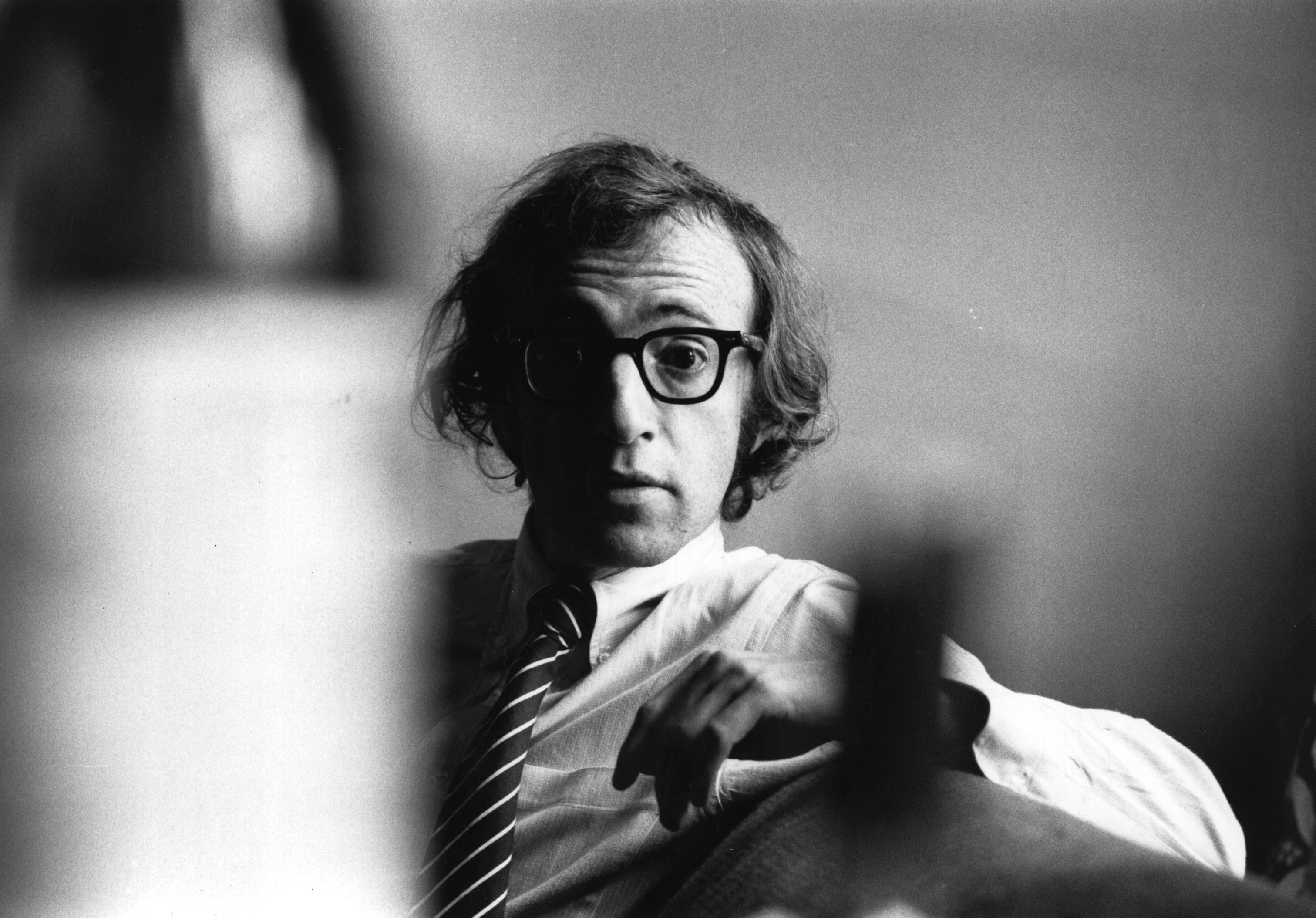Woody Allen Comedy: Genius, Humor & Controversy Explored
Can existential crises be hilarious? Woody Allen not only proves it, but he built a career on the notion. His ability to transform neuroses into art and make us laugh at our own absurdities is the stuff of legend. From his early stand-up routines to cinematic masterpieces like "Annie Hall" and "Midnight in Paris," Woody Allen comedy has redefined the very nature of humor, making it both profoundly intellectual and side-splittingly funny.
Woody Allen isn't your typical entertainer; he's a comedic philosopher. His humor delves deep into the complexities of the human condition, transcending mere jokes to explore relationships, the anxieties of mortality, and the elusive meaning of life. He possesses a unique ability to unearth the humor, the irony, and the sheer absurdity residing within the darkest corners of human experience. It is this very quality that has granted his work a timeless and relatable appeal, resonating with audiences across generations.
Before we delve deeper into the intricacies of his comedic genius, let's establish a foundational understanding. This exploration isn't merely about laughter; it's about grasping the essence of the man behind the jokes. We will dissect his distinct comedic style, the influences that shaped his perspective, and the controversies that have shadowed his career. By the end of this journey, you'll not only appreciate Woody Allen's unique comedic voice but also grasp the enduring power of his work. Now, prepare to be entertained, enlightened, and perhaps, a little introspective.
| Full Name | Allan Stewart Konigsberg |
|---|---|
| Date of Birth | December 1, 1935 |
| Place of Birth | Brooklyn, New York |
| Profession | Writer, Director, Actor, Comedian |
| Spouse | Soon-Yi Previn |
Reference: Britannica
The trajectory of Woody Allen's career began in the vibrant ecosystem of New York City's clubs and theaters. During the late 1950s, he emerged as a stand-up comedian, quickly distinguishing himself with his witty, self-deprecating style. Unlike the slapstick humor prevalent at the time, Woody Allen embraced a more cerebral and introspective approach, frequently satirizing his own insecurities and neuroses. His early performances set the stage for the complex characters and existential themes that would later define his films. This innovative approach to comedy was a significant departure, forging a new path in the industry.
However, his creative endeavors weren't confined to the stand-up stage. Allen also honed his craft through screenwriting, crafting scripts for various television shows and films. This experience proved crucial in refining his ability to create clever dialogue and construct situational humor, skills that would later become hallmarks of his directorial work. The development of his comedic voice was well underway by the time he directed his first feature film, "What's Up, Tiger Lily?" in 1966. Allen had already begun to establish his unique brand of comedy and its place in the entertainment industry.
- Discover Sone 260 Your Digital Transformation Starts Now
- Exploring Sexy Film Dikhaiye Open Trends Insights
The essential elements that characterized his early career include:
- Stand-up performances in New York clubs.
- Screenwriting contributions to both television and film.
- The direction of his inaugural feature film.
What exactly sets Woody Allen's comedic style apart? The key lies in his extraordinary ability to merge intellectual humor with everyday absurdities. His characters frequently grapple with existential dilemmas, seeking humor in the face of life's complexities. This signature style is apparent in his stand-up routines and in his films, solidifying his reputation as a comedic innovator.
The defining characteristics of Woody Allen's comedic style are:
- A propensity for self-deprecating humor.
- The use of witty, memorable one-liners.
- Underlying intellectual and philosophical themes.
Consider, for instance, the film "Annie Hall." Alvy Singer, the protagonist, delivers lines that are both humorous and thought-provoking, encapsulating the very essence of Allen's unique approach. This capacity to provoke laughter while simultaneously prompting deeper reflection is what renders Woody Allen's comedy so truly exceptional.
Woody Allen's comedic vision did not arise in isolation. He drew inspiration from a broad spectrum of sources, encompassing literature, philosophy, and other comedians. Growing up, he was deeply influenced by the comedic brilliance of figures like Groucho Marx and the Marx Brothers, whose irreverent style left a lasting impact on his creative sensibilities.
Philosophical inquiries also played a pivotal role in shaping Woody Allen's comedic vision. The works of philosophers like Sren Kierkegaard and Jean-Paul Sartre, with their exploration of existentialism and the inherent absurdity of life, found their way into his films, adding depth and complexity to his humor. This fusion of philosophy and comedy is a cornerstone of Woody Allen's distinctive work, distinguishing it from the landscape of mainstream humor.
Here are some of the key influences that shaped Woody Allen's comedy:
- The comedic genius of Groucho Marx and the Marx Brothers.
- The philosophical insights of Sren Kierkegaard and Jean-Paul Sartre.
- The culturally rich and vibrant environment of New York City.
A discussion about Woody Allen's comedy would be incomplete without delving into his iconic films. From the poignant narrative of "Annie Hall" to the enchanting allure of "Midnight in Paris," Allen has consistently created a body of work that continues to captivate and entertain audiences across the globe, cementing his legacy.
The film "Annie Hall," released in 1977, is frequently regarded as Woody Allen's masterpiece. It chronicles the story of Alvy Singer and his turbulent relationship with Annie Hall. The humor in this film is both poignant and relatable, exploring themes of love, loss, and personal discovery. It's a film that continues to resonate because of its authenticity and its willingness to explore the complexities of human connection.
"Midnight in Paris," released in 2011, offers a fantastical twist to Woody Allen's comedic style. The narrative follows Gil Pender, a screenwriter who magically travels back in time to meet his literary heroes. The film stands as a love letter to Paris, celebrating the power of imagination and filled with clever dialogue and endearing characters. It's a testament to Allen's ability to craft stories that are both whimsical and profoundly moving.
These films, and many others, highlight Woody Allen's remarkable ability to seamlessly blend comedy and drama, creating works that resonate with viewers on numerous levels. He's shown that humor can be a vehicle for exploring the most complex and challenging aspects of human existence.
Although Woody Allen's comedic contributions have earned him numerous accolades and widespread acclaim, his career has not been without controversy. Allegations of misconduct and personal scandals have, unfortunately, cast a shadow over his professional life in recent years. While it's crucial to acknowledge these controversies, it's equally important to recognize the artistic merit and comedic brilliance inherent in his films.
Appreciating the artistic value of Woody Allen's work while acknowledging the controversies surrounding him presents a complex but essential task. As with any public figure, separating the person from their creative output can be challenging. However, it's a conversation worth having, allowing audiences to engage with his films with a nuanced understanding of the man and his work.
Woody Allen's legacy in the realm of comedy is undeniable. He has profoundly influenced countless comedians and filmmakers, leaving an indelible mark on the industry. His exceptional skill in uncovering humor in the most unexpected places has inspired generations of artists to explore new frontiers in comedy and storytelling. His work continues to be a source of inspiration and a testament to the enduring power of humor.
The key highlights of Woody Allen's comedic legacy include:
- Influencing modern comedians and filmmakers, shaping the landscape of contemporary humor.
- Creating a distinctive comedic style that seamlessly combines intellectualism and humor, setting a new standard in the field.
- Producing a filmography that continues to captivate audiences globally, proving the timeless nature of his creative vision.
Woody Allen's comedic contributions have had a significant impact on contemporary comedy, encouraging artists to push boundaries and delve into uncharted themes. His work has proven that comedy can be both entertaining and thought-provoking, challenging audiences to move beyond surface-level amusement and engage with deeper ideas. His influence is palpable across a range of comedic styles and continues to evolve.
The pervasive influence of Woody Allen's work can also be observed in the stand-up comedy world. Contemporary comedians often incorporate elements of his signature style, including self-deprecating humor and intellectually driven observations, to connect with their audiences. This legacy ensures that Woody Allen's comedic voice will continue to inspire future generations of performers and writers.
To further illustrate his wit and unique view of the world, here are some of Woody Allen's most famous quotes:
- "I don't want to achieve immortality through my work. I want to achieve it through not dying." This encapsulates his comedic approach to life, tackling the serious subject of death with a touch of humor and self-awareness.
- "Eighty percent of success is showing up." This seemingly simple statement carries a profound message about perseverance and the importance of effort.
- "Death is one of the few things that can be done as easily lying down." Another example of his ability to find humor in the face of existential realities, offering a perspective that is both funny and thought-provoking.
These quotes, among others, epitomize the essence of Woody Allen's comedy: smart, funny, and deeply human. They reflect his unique perspective on life and his remarkable ability to find humor in the most unexpected of places.



Detail Author:
- Name : Frederik Ferry
- Username : eldon.graham
- Email : thiel.jaunita@dubuque.info
- Birthdate : 1979-02-12
- Address : 6732 Matt Hills Whiteview, DC 53142-5302
- Phone : 470.217.6923
- Company : Little-Schmitt
- Job : Social Service Specialists
- Bio : Ab quia consequuntur repudiandae iure ipsam nulla. Ea ut neque praesentium corrupti odio vero. Velit hic et dolores consequatur laboriosam veniam quo. Debitis eaque omnis nobis doloremque.
Socials
twitter:
- url : https://twitter.com/lbednar
- username : lbednar
- bio : Sed et quis voluptas. Laborum qui ut suscipit nostrum deleniti. Ut facere neque animi ut voluptate. Recusandae nulla quod ipsam.
- followers : 5728
- following : 991
facebook:
- url : https://facebook.com/lbednar
- username : lbednar
- bio : Aut id et voluptatem consectetur.
- followers : 4899
- following : 2977
instagram:
- url : https://instagram.com/bednarl
- username : bednarl
- bio : Velit aperiam quaerat recusandae nemo nostrum vel. Est dolores expedita fugiat rerum est excepturi.
- followers : 3258
- following : 1242
tiktok:
- url : https://tiktok.com/@bednar1995
- username : bednar1995
- bio : Odit fugiat pariatur cupiditate quisquam id.
- followers : 4493
- following : 2373